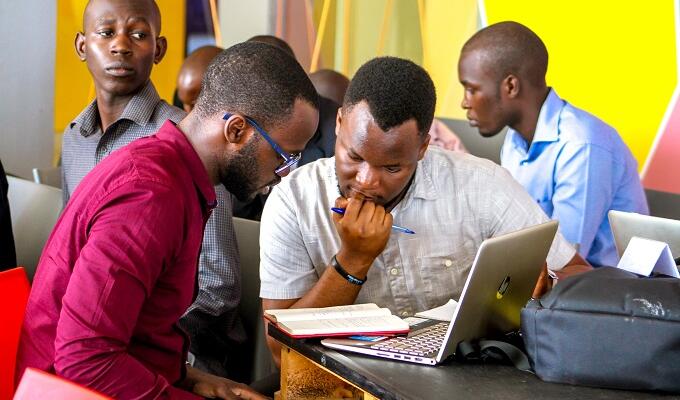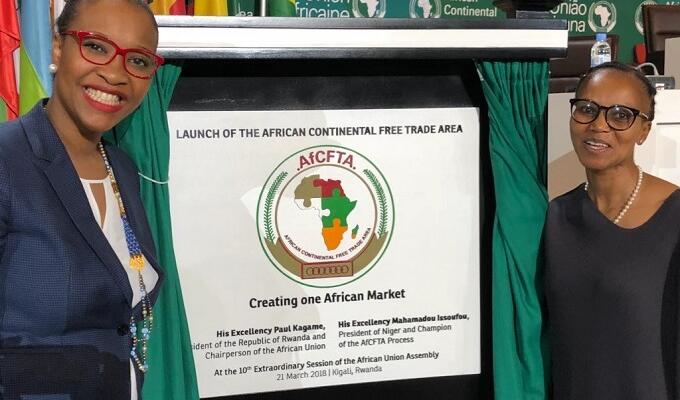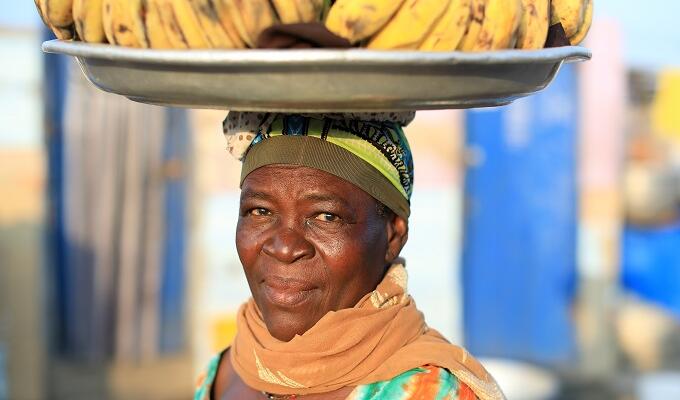



AfCFTA for more prosperity
Africa’s new open trade area has the potential to generate jobs, growth in the services market
What does the African Continental Free Trade Area (AfCFTA) mean for Adwoa Serwaa selling her banana chips in Kumasi market in Ghana, for Malala Rakotodrainabe a vanilla wholesaler in the Analakely market in Antananarivo, Madagascar, and for Mohammed Khaled, a tech entrepreneur providing e-solutions to restaurants in Marrakesh, Morocco? How can the AfCFTA affect positively on their businesses in the coming years?
While the African private sector is the direct beneficiary of the AfCFTA, in many ways the publicity about the agreement has been limited to high-level government officials, trade negotiators, economists, diplomats and to some extent to larger companies and multinationals.
Given its mandate of empowering micro, small and medium-sized enterprises (MSMEs), the International Trade Centre (ITC) has an important role to play in ensuring that establishing a single market directly benefits MSMEs, in particular women- and youth-owned businesses.
ITC’s current portfolio of projects in Africa carries a weight of over $100 million. This has been a great year for ITC and 2019 project delivery amounted to almost $40 million, roughly half of ITC’s total expenditure. The percentages were 37% and 42% for 2017 and 2018 respectively. We are thus on a sustained growth path in Africa.
Today youth and women are crucial economic agents in Africa. For instance, African Union and other estimates show that women account for about 70% of informal cross-border trade. They are involved in almost all sectors of the economy and make important contributions to the economic well-being of the continent, yet their role is almost always relegated due to societal and cultural norms. They face harassment in various forms, especially when they take up cross-border activities. This deters women already in business and new entrants from engaging in cross-border trade.
With a harmonized continental trade regime, non-tariff barriers faced by women will be reduced. They will be able to move their goods across borders with relative ease.
Furthermore, a harmonized continental trade regime will offer young women opportunities to stage new businesses. ITC intends to place SheTrades, its flagship programme for women economic empowerment, at the centre of its efforts to make the AfCFTA work.
The demographic dividend is also a huge opportunity for the continent, as youth will contribute to Africa’s structrual transformation. According to the United Nations, 226 million young people aged 15-24 lived in Africa in 2015, representing nearly 20% of Africa’s population and making up one-fifth of the world’s youth population. This number increases to three-quarters if one includes people under 35 years. Today this group constitutes about 60% of Africa’s unemployed. The AfCFTA is an opportunity to upgrade skills, increase know-how on best trade practices, stimulate entrepreneurial initiatives, fight illiteracy and reduce migration-related risks. Thus, the AfCFTA will help in transforming Africa’s large youth population into an asset rather than a liability.
ITC develops solutions based on the needs of its beneficiaries. To make the AfCFTA economically profitable for women and youth, we are investing in the development of market-driven (life, soft, and digital) skills; producing trade and market intelligence; strengthening the offering of business associations to better support women- and youth-led MSMEs; advocating for a more predictable, reliable ecosystem for business transactions; and promoting South-South Trade.
Women and youth living in rural and urban areas should be fully equipped with soft and digital skills to respond to market needs. While entrepreneurs and MSMEs have key roles to play in the economic success of Africa in the 21st century, they face many challenges whether as local or international businesses. More often than not, SMEs face skills challenges in addition to accessing finance. The AfCFTA will open up the continent’s business landscape and allow MSMEs a vast space to link with big corporations who have excellent skill sets to transfer to them.
When MSMEs are able to develop their capabilities in supply, they can easily be integrated in the supply chains of big corporations. Moreover, large companies have plenty to learn from agile MSMEs due to their small size and the ease with which they churn out innovation. Big corporations will also have access to novel ideas provided by micro and small businesses, a situation which is difficult to obtain due to the bureaucratic nature of big corporations.
Curriculum programmes that foster entrepreneurship skills among women and young people must be promoted to consolidate a strong and sustainable African private sector. This is, in fact, being achieved through the ITC Youth and Trade Programme.
The African Trade Observatory is perhaps the best instrument to access and analyse African trade and market information, with trade data, expertise and tools all in one place. Its online dashboard features real-time trade and market access information across countries, products and markets. Companies use it to identify opportunities, comply with market requirements and connect with trade partners.
The Observatory and other ITC trade market intelligence tools or services contribute to business sustainability, which in turn builds the capabilities of the firm to advance onto the global stage if so desired.
Business associations must offer robust products and services to help youth and women entrepreneurs to take advantage of the AfCFTA. They must produce concrete solutions that address specific market requirements. These associations have to provide tailor-made training, counselling and advisory services on quality, marketing, labelling and packaging services to better empower entrepreneurs and MSMEs to become more competitive. It is therefore critical that the AFCTA is understood by African business organizations to enable them to better support the African private sector in their positioning at the continental level. ITC is already working with African trade and investment promotion organizations, as well as sector associations to strengthen their technical offering.
A MORE PREDICTABLE, RELIABLE ECOSYSTEMAfrican governments should acknowledge the business community as a key stakeholder in the process, whose views must be sought during all facets of negotiations. Their inputs should be seen as critical to influence the outcomes and to ensure that the potential benefits to business and the wider community are realized.
The business community also has a responsibility to become aware of the technical aspects of the AfCFTA; form common positions keeping in view the barriers faced by the most vulnerable (women, youth, micro enterprises etc.); and engage in business advocacy to play a constructive role in improving the business ecosystem. ITC is holding public-private dialogues in a number of African countries to ensure that the private sector is aware of not only the opportunities which may come from the AfCFTA, but also the reforms that might be adopted for the operationalization of the agreement at country level.
The epicentre of economic development is no longer concentrated in the North. There is huge potential in South-South trade and investment. ITC has made this a priority and is implementing two key projects worth $38 million in Africa which promote Chinese and Indian trade and investment. Recently there was an initiative which promoted the export of cashew nuts from West Africa to Viet Nam. ITC firmly believes that South-South trade and investment can be an important building block in the construction of the AfCFTA.



